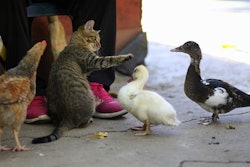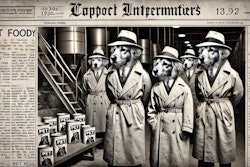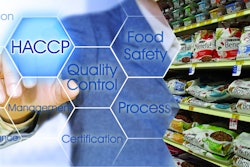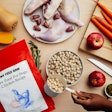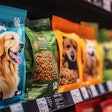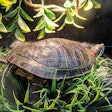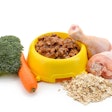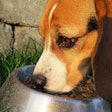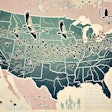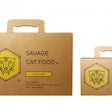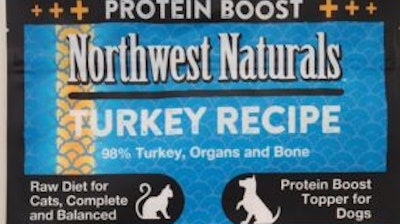
One cat caught highly pathogenic avian influenza (HPAI) virus and subsequently died after eating Northwest Naturals brand 2lb Feline Turkey Recipe raw frozen pet food. Portland, Oregon-based Northwest Naturals recalled one batch of this product after it tested positive for HPAI. As of Dec. 24, no human cases of HPAI have been linked to this incident.
Testing conducted by the U.S. Department of Agriculture’s (USDA) National Veterinary Services Laboratories (NVSL) and the Oregon Veterinary Diagnostic Laboratory (ODVL) at Oregon State University confirmed that a house cat contracted H5N1 and died after consuming the raw frozen pet food.
“We are confident that this cat contracted H5N1 by eating the Northwest Naturals raw and frozen pet food,” ODA State Veterinarian Dr. Ryan Scholz said in a press release. “This cat was strictly an indoor cat; it was not exposed to the virus in its environment, and results from the genome sequencing confirmed that the virus recovered from the raw pet food and infected cat were exact matches to each other.”
The Oregon Health Authority (OHA) and local public health officials are monitoring household members who had contact with the cat for flu symptoms.
The recalled product is packaged in 2-pound plastic bags with “Best if used by” dates of 05/21/26 B10 and 06/23/2026 B1. The product was sold through distributors in AZ, CA, CO, FL, GA, IL, MD, MI, MN, PA, RI and WA in the United States, and British Columbia in Canada.
This recall is being conducted in cooperation with the Oregon Department of Agriculture, Salem, Oregon.
38 cats died after eating bird-flu-tainted cat food in 2023
The case in Oregon bears similarities to one in South Korea in which 38 out of 40 infected cats died within a month. That 2023 HPAI outbreak occurred in shelter cats that had all been kept indoors, so it seemed unlikely that wild birds had spread the pathogen to the cats. Instead, the virus may have spread to the cats through their food. Investigators with South Korea’s Ministry of Agriculture, Food and Rural Affairs (MAFRA) detected influenza A(H5N1) virus in cat food from one of the shelters. The cat foods were Balanced Duck and Balanced Chicken manufactured by Nature's Raw at its facility in Gimpo, west of Seoul. The Ministry stated that the company had failed to follow necessary sterilization steps since May 25 due to an equipment malfunction. MAFRA officials then ordered the recall of all cat food batches considered at risk of harboring the virus.
A team of researchers examined this outbreak and published a summary in Nature Communications, along with suggestions for controlling future cross-species disease transmission.
“The influenza A(H5N1) outbreaks in the cat shelters in South Korea, along with an increasing number of reports of influenza A(H5N1) infection in mammals, suggest the need to enhance the effectiveness of infectious disease surveillance and prevention in any settings where a group of potentially susceptible animals are kept in close contact,” they wrote. “This is particularly important for groups of animals that typically are not covered by regulatory efforts aimed at maintaining or improving animal health and welfare standards. These animal groups could not only provide environments for cross-species viral transmission, promoting zoonotic risk, but could also serve as sentinels for detecting such events, thereby offering opportunities to assess and then mitigate such risk.”
FDA offers guidelines to reduce HPAI risk in cats, emphasizes pet food safety
The U.S. Food and Drug Administration (FDA) provided information about ways to reduce the risk to pets of contracting H5N1. The agency issued recommendations for safe feeding practices after investigations revealed links between HPAI infections in felines and the consumption of contaminated or improperly processed food products.
Recent reports have shown that domestic and wild cats, including species such as tigers, mountain lions and lynx, are highly sensitive to HPAI. There have been several recent investigations indicating transmission of HPAI to cats through food, most often unpasteurized milk or raw or undercooked meats. Cats should not be fed any products from affected farms that have not been thoroughly cooked or pasteurized to kill the virus. Cats should also be kept from hunting and consuming wild birds.
The Centers for Disease Control and Prevention (CDC) highlighted a concerning case in its July 2024 report. Domestic cats on a dairy farm contracted HPAI after being fed unpasteurized milk from cows infected with the virus. The cats displayed neurological symptoms and later died from systemic influenza infections.
The U.S. Department of Agriculture (USDA) is actively monitoring HPAI in wild mammals, including feral and domestic cats, through its surveillance and testing program. While dogs are less susceptible to the virus, the FDA advises that similar precautions be taken for canines to mitigate risk.
Avian influenza or bird flu naturally spreads among wild aquatic birds worldwide and can infect domestic poultry and other bird and animal species, according to the World Health Organization. Highly pathogenic avian influenza is a subtype of the virus. It can cause severe illness and high mortality rates in domestic poultry and wild birds. The viruses can devastate poultry industries and have economic repercussions due to trade restrictions. Some varieties, including H5N1, can cross species barriers and may cause severe illnesses in mammals.



